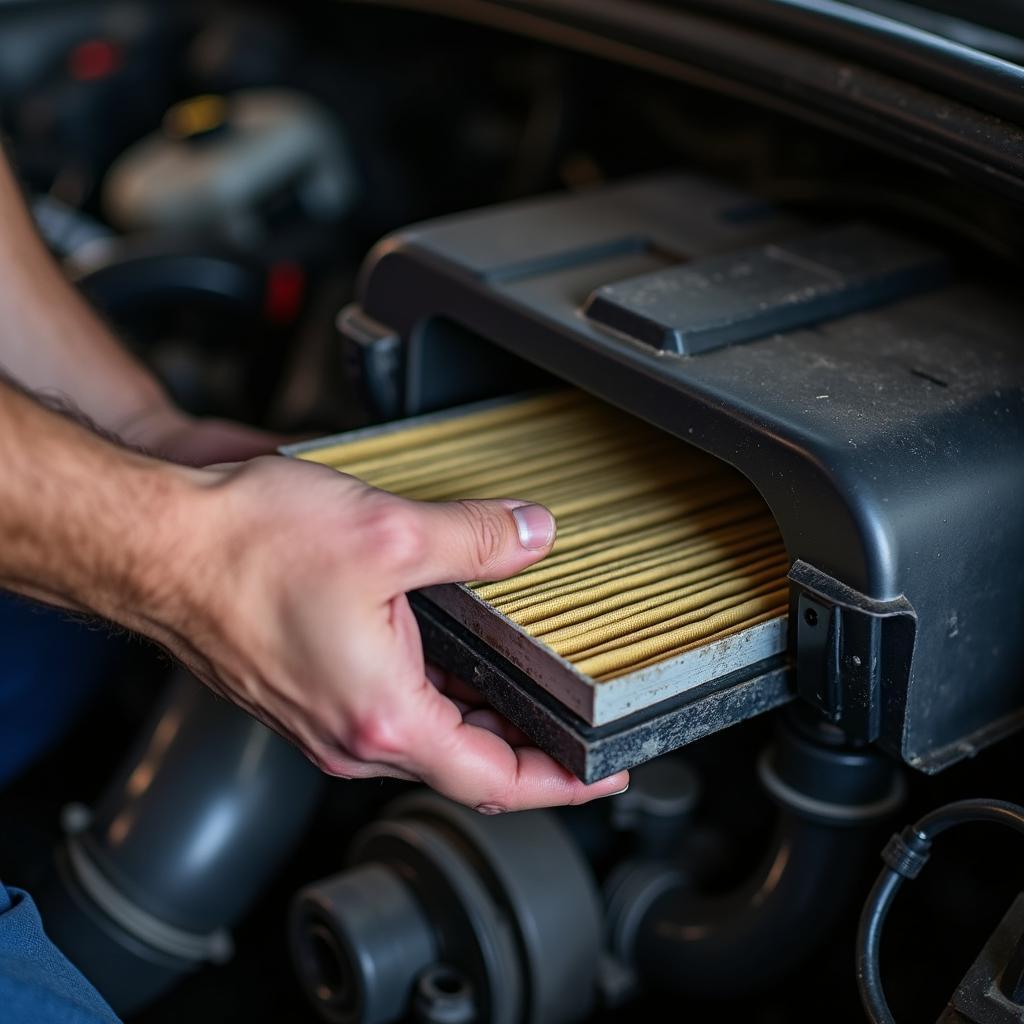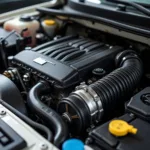Diesel cars are known for their fuel efficiency and durability, making them a popular choice for many drivers. However, like all vehicles, they require regular servicing to maintain optimal performance and longevity. While servicing a diesel car shares some similarities with its petrol counterpart, there are crucial differences that require specific attention. This guide will walk you through the essential steps involved in servicing a diesel car, empowering you with the knowledge to keep your vehicle running smoothly for years to come.
Understanding Diesel Engine Servicing
Diesel engines operate under higher compression ratios and utilize a different fuel combustion process compared to gasoline engines. Consequently, servicing a diesel car involves unique procedures tailored to these distinct characteristics. Understanding these differences is crucial for ensuring proper maintenance and maximizing the lifespan of your diesel engine.
Essential Diesel Car Service Tasks
Servicing a diesel car encompasses a range of tasks, some more involved than others. Let’s break down the key procedures:
1. Oil and Filter Change
Regular oil changes are paramount for any engine, and diesel engines are no exception. Diesel engine oil is specifically designed to handle the higher soot and combustion byproducts produced during operation. Using the correct oil grade and changing it at recommended intervals (refer to your owner’s manual) ensures optimal lubrication and prevents premature engine wear.
2. Fuel Filter Replacement
Diesel fuel often contains more contaminants compared to gasoline, making a high-quality fuel filter essential. The fuel filter traps dirt, debris, and water, preventing them from entering the engine and potentially causing damage to the fuel injectors and other sensitive components. Replacing the fuel filter regularly, typically every 15,000-20,000 miles, ensures clean fuel delivery and optimal engine performance.
3. Air Filter Inspection and Replacement
A clean air filter is vital for proper engine combustion. The air filter prevents dust, dirt, and debris from entering the engine, ensuring a consistent flow of clean air for optimal fuel-air mixture. Inspect the air filter regularly and replace it if it appears dirty or clogged, or as recommended in your owner’s manual.
 Diesel Air Filter Replacement
Diesel Air Filter Replacement
4. Diesel Particulate Filter (DPF) Regeneration
Modern diesel cars are equipped with a Diesel Particulate Filter (DPF) to reduce harmful emissions. The DPF traps soot particles from the exhaust gases, and when it becomes full, it requires regeneration. Regeneration is a process that burns off the accumulated soot, typically initiated automatically by the engine management system. However, if the car is primarily driven in short trips or at low speeds, the DPF may not reach the required temperature for automatic regeneration. In such cases, a forced regeneration might be necessary, which can usually be performed by a mechanic using a diagnostic tool.
5. Glow Plug Check
Unlike gasoline engines, diesel engines rely on glow plugs to preheat the combustion chamber, especially during cold starts. Over time, glow plugs can wear out or fail, leading to difficult starting, rough idling, or increased emissions. It’s advisable to have your glow plugs checked periodically, particularly if you experience any starting issues.
6. Turbocharger Inspection
Many modern diesel cars are equipped with turbochargers to boost engine power. Turbochargers operate at high speeds and temperatures, making them susceptible to wear and tear. Regular inspection of the turbocharger for any signs of oil leaks, unusual noises, or excessive play can help prevent costly repairs down the line.
7. Other Essential Checks
In addition to the diesel-specific tasks mentioned above, a comprehensive diesel car service should also include standard checks common to all vehicles:
- Brake Inspection and Service: Checking brake pad thickness, rotor condition, and brake fluid level is crucial for safe driving.
- Coolant System Check: Inspecting coolant levels, hoses, and the water pump ensures optimal engine temperature regulation.
- Battery Testing: Checking the battery’s voltage and overall health ensures reliable starting power.
- Tire Pressure and Condition: Maintaining proper tire pressure and inspecting tires for wear and tear ensures optimal handling, fuel efficiency, and safety.
DIY vs. Professional Servicing
While some basic maintenance tasks can be performed by car owners with basic mechanical skills, it’s generally recommended to have your diesel car serviced by a qualified mechanic, especially for more complex procedures.
“A well-maintained diesel engine can last for hundreds of thousands of miles,” says Carl Johnson, a veteran diesel mechanic with over 20 years of experience. “Regular servicing by a knowledgeable technician can identify potential issues early on, saving you time, money, and headaches in the long run.”
Conclusion
Servicing your diesel car regularly is an investment in its performance, longevity, and your safety. By understanding the specific requirements of diesel engines and following the recommended maintenance schedule outlined in your owner’s manual, you can keep your diesel car running smoothly for years to come. Remember, prevention is always better than cure, and a well-maintained diesel engine will reward you with fuel efficiency, reliability, and driving enjoyment for miles to come.

